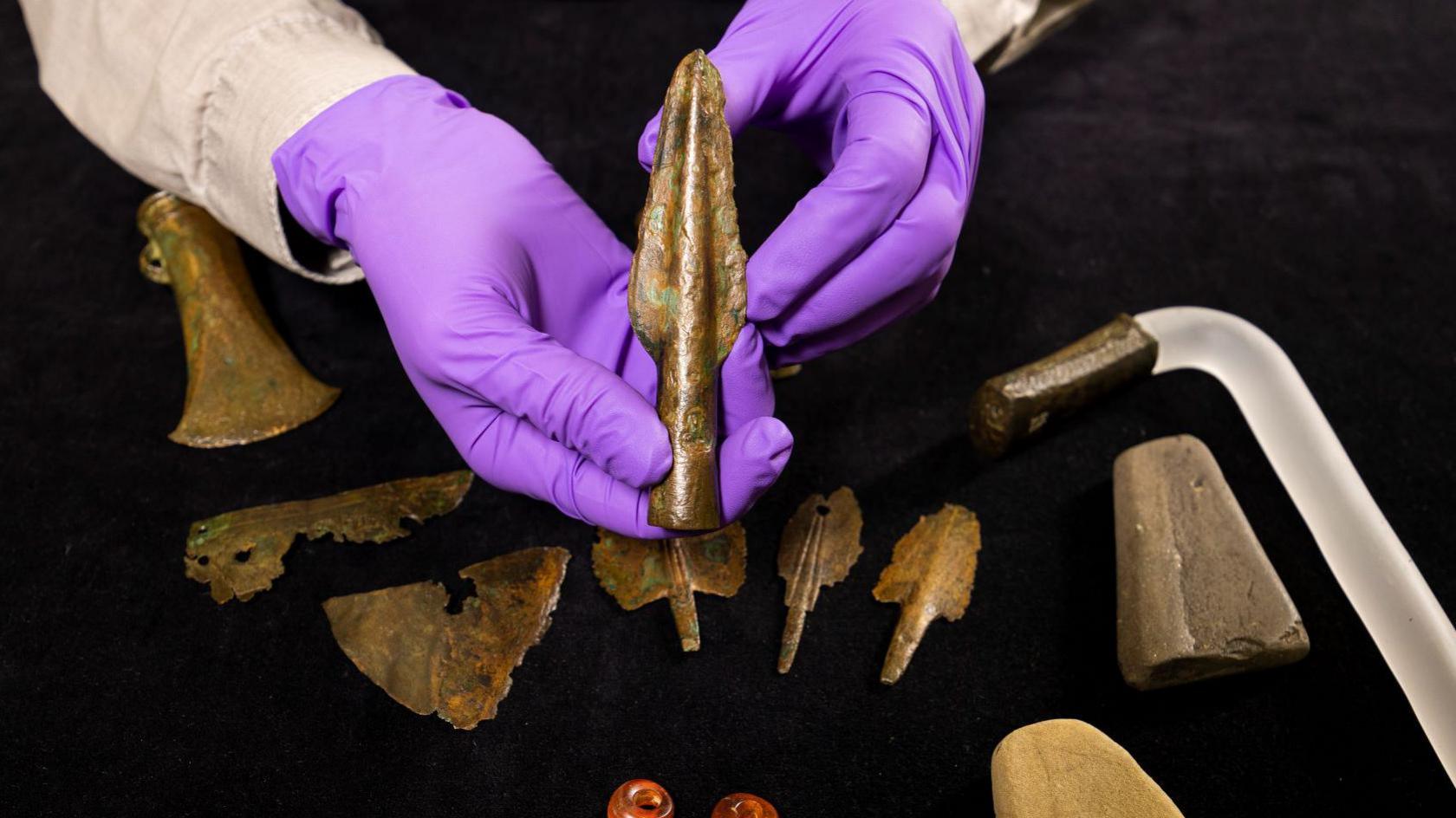'Finding 3,500-year-old wooden spade was exciting'
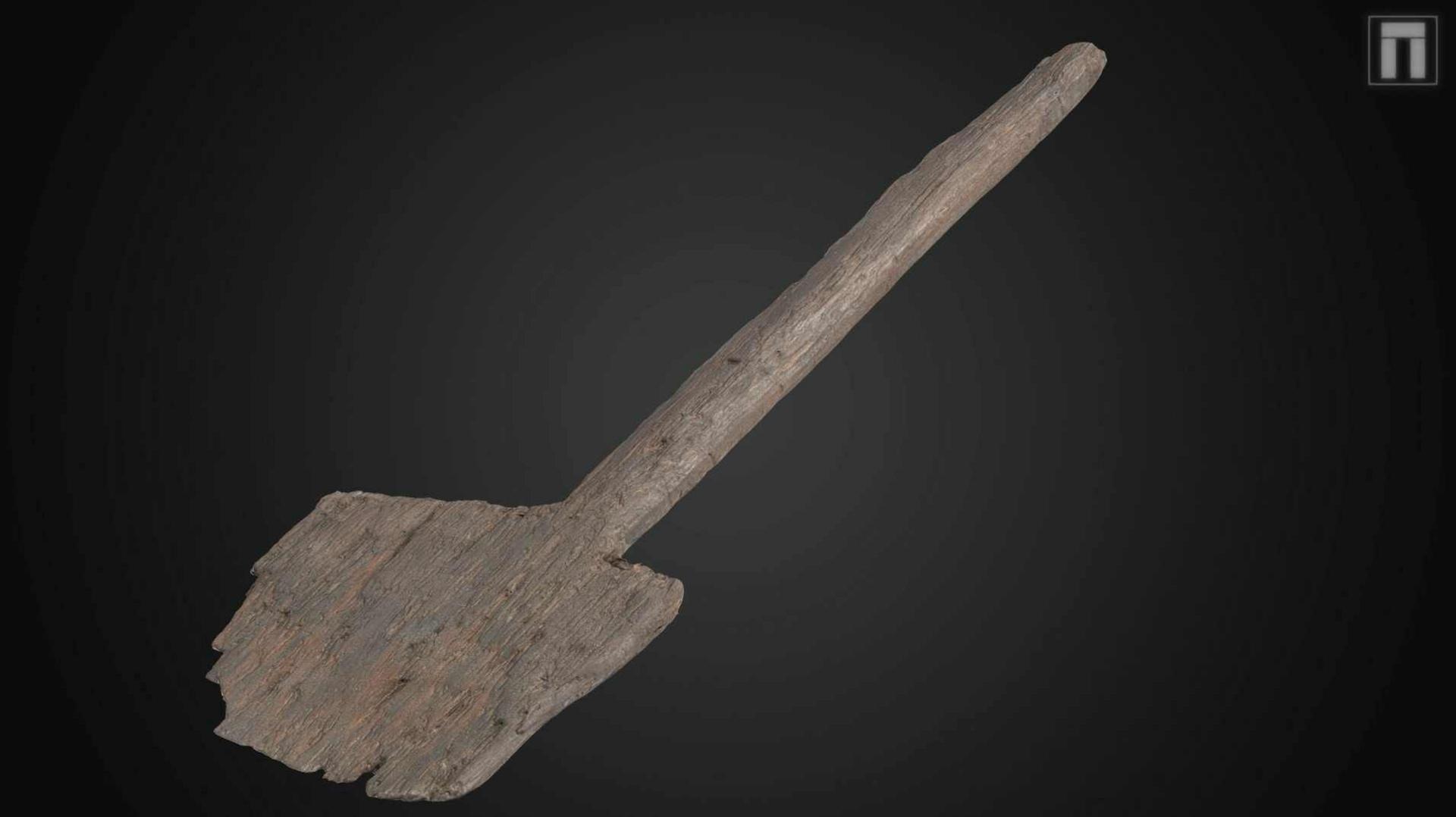
The wooden spade, that dates back to the Bronze Age, has been described as "really unique"
- Published
It's a "once-in-a-career" find and an "indescribable" moment.
The archaeologists who unearthed an extremely rare 3,500-year-old wooden spade, believed to date to the Bronze Age, has been speaking about the experience.
It was uncovered in Poole Harbour during work on a scheme to create coastal habitat.
Phil Trim, who led the recovery, said" "It's a really unique object, to find something that's wooden of that age."
He added the team initially had a certain amount of scepticism over what they had found, thinking it could be a tree root but that was followed by "amazement when we realised that it was actually a tool, almost complete".
"It was indescribable, it really was an exciting moment," he said.
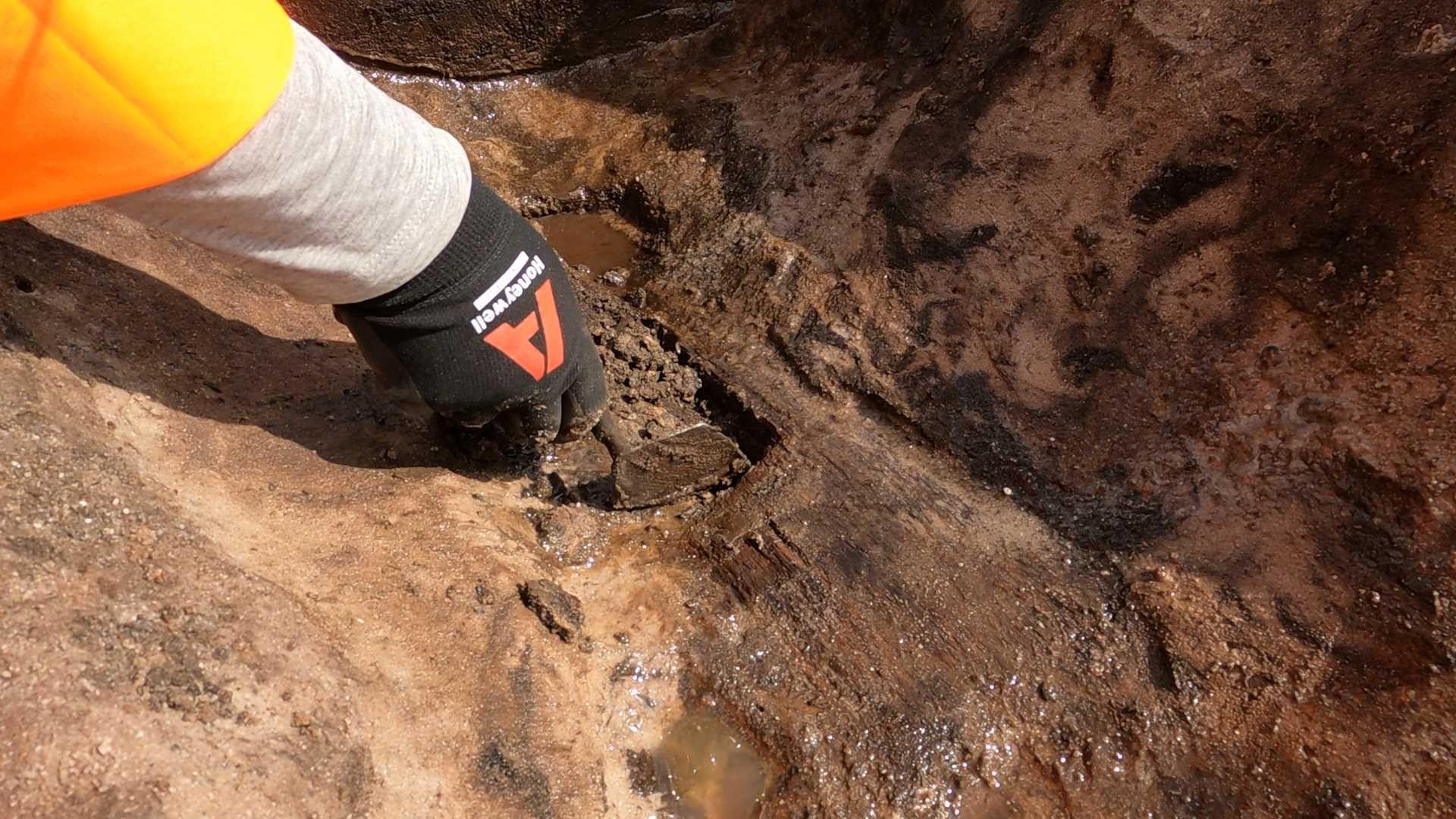
Archaeologists thought it was initially a tree root.
The Moors at Arne project is taking place across 150 hectares (370 acres) of diverse wetlands and is in response to loss of coastal habitat such as salt marsh and mudflats as rising sea levels increasingly push up against sea defences in a process known as "coastal squeeze".
Archaeologists from Wessex Archaeology said it is very unusual for organic material such as wood to last for so long, surviving for more than three millennia because of the waterlogged nature of the site.
The tool was found in a circular ditch, which archaeologists think were cut by Bronze Age people to keep things in the centre dry from flooding.
Ed Treasure, from Wessex Archaeology who led the environmental analysis of the spade, said the tool had been preserved due to the waterlogged conditions.
"That occurs where it remains permanently wet through burial and excludes the oxygen.
"So unlike in a normal archaeological site, where organic remains like wood would disappear, they can become preserved for thousands of years, as this one demonstrates."
"But they are also very fragile, even when preserved", he said, adding the "field team did an amazing job lifting this on site", getting the spade out in one piece to specialists in the lab who are working to conserve it.
The Moors at Arne project is being delivered by the Environment Agency, RSPB and Natural England.
Get in touch
Do you have a story BBC Dorset should cover?
You can follow BBC Dorset on Facebook, external, X (Twitter), external, or Instagram, external.
Related topics
More from the BBC
- Published26 April 2024
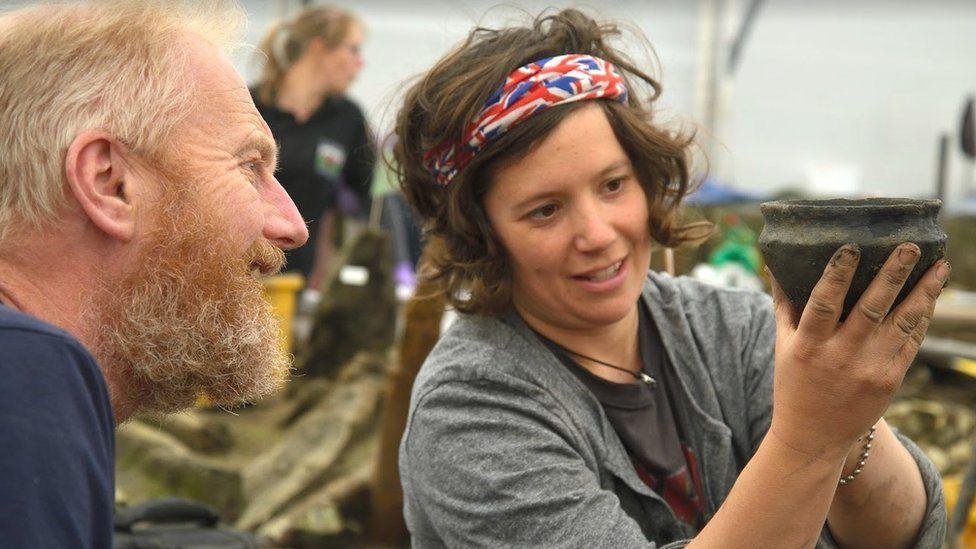
- Published18 July 2023
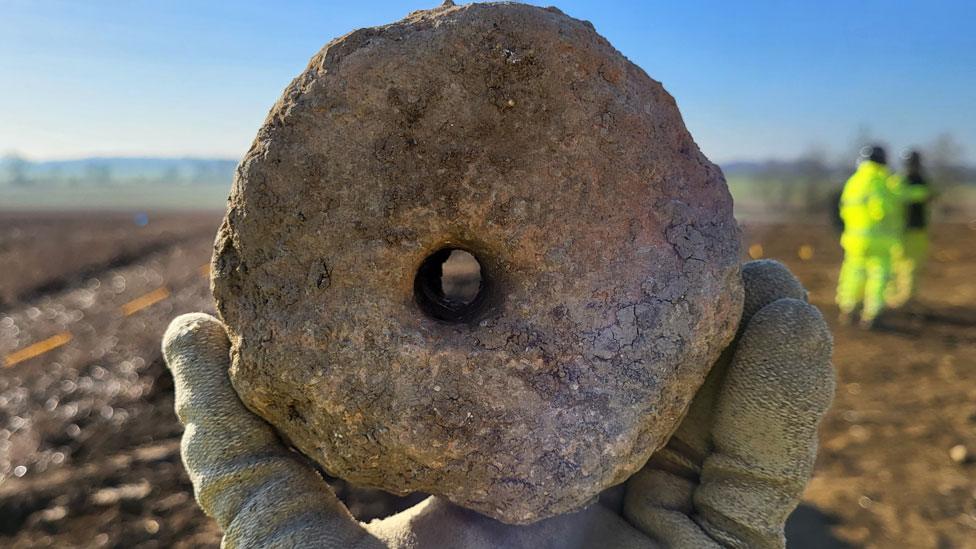
- Published21 March 2023
